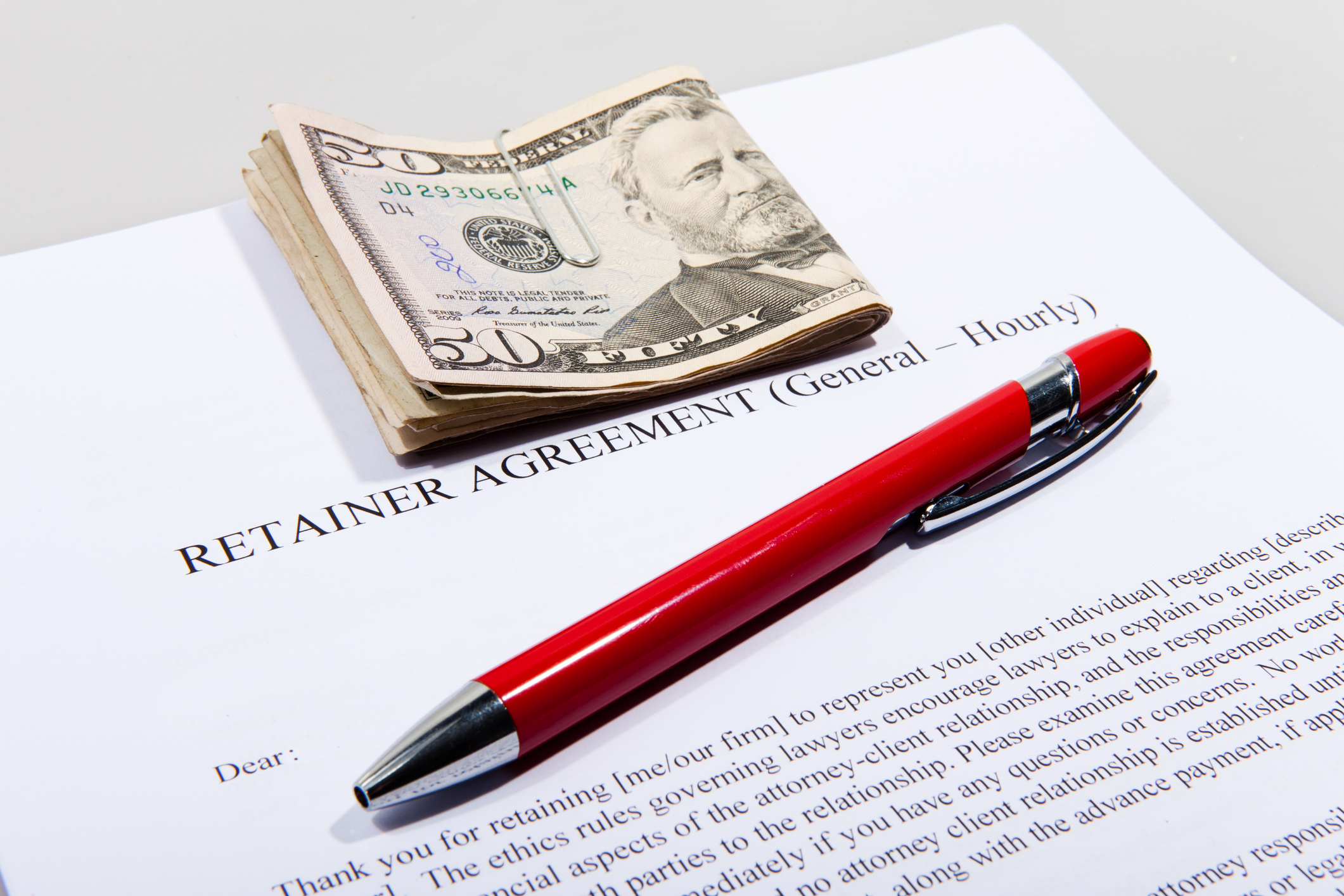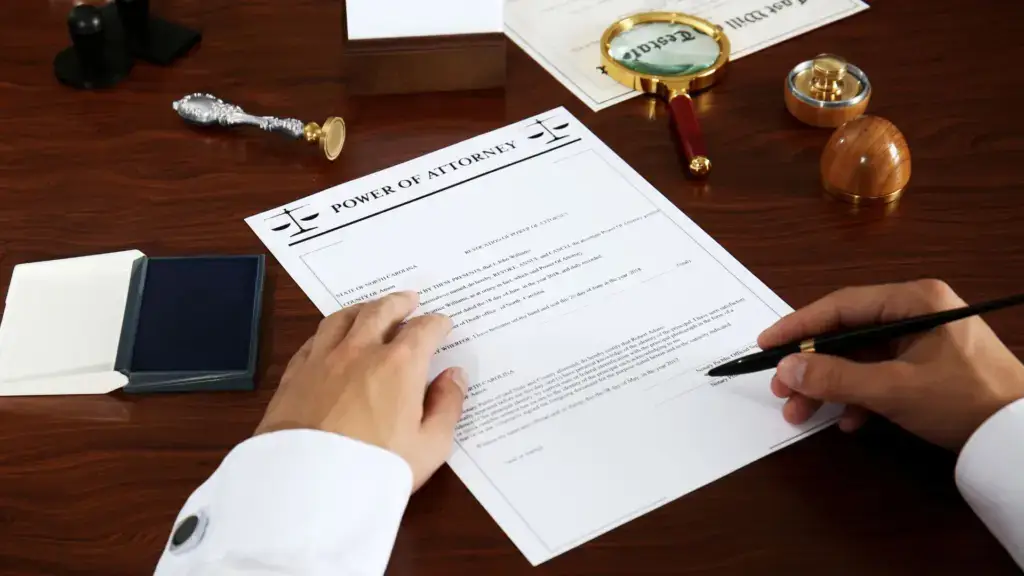Have you heard the term “retainer” thrown around when it comes to lawyers? Unless you’ve hired one before, you might not know the ins and outs of a lawyer’s retainer and what it really means for your case. So, what is a retainer? In its simplest form, a legal retainer is an upfront payment you make to secure a lawyer’s services. It acts like a down payment for legal services. But let’s really break down how, why and what a retainer actually does.
What Is the Purpose of a Retainer for a Lawyer?

A retainer is more than just a fee—it’s the foundation of your professional relationship with your lawyer. When you pay a retainer, you’re basically “reserving” a lawyer’s time, attention, and expertise. Think of it as the legal world’s equivalent of putting a deposit down to reserve a table at a busy restaurant or booking a contractor to work on your home. You’re making sure your lawyer is ready and able to handle your legal needs when you need them most.
What Does the Retainer Fee Cover?
Retainers can cover a range of services depending on your agreement, such as:
- Attorney’s hourly work on your case
- Legal research and preparation
- Drafting documents, pleadings, or letters
- Filing fees and court costs
- Depositions and trial appearances
- Expert witness or investigator fees (if specified)
Always check if your retainer agreement outlines exactly which services and expenses are covered to prevent misunderstandings later.
What Type of Cases Require Retainers?
Retainers aren’t only for big, drawn-out lawsuits. They’re used for everything from divorce cases, business transactions to wrongful death cases, and even for ongoing advice. If you want to be sure you can reach your attorney when issues pop up, a retainer is how you make that happen.
How Much Do Most Lawyers Charge for Retainers?
The cost of a lawyer’s retainer can range widely based on several factors: the difficulty of the case, the lawyer’s level of experience, and the lawyer’s location. Retainers for routine matters might be as low as $500 to $2,000, while more involved legal cases—such as business litigation or criminal defense—could require $5,000, $10,000, or even more upfront. Some cases or high-stakes litigation may demand retainers of $25,000-100,000 or more. It’s common for the attorney to estimate the amount needed based on expected hours, case difficulty, and any anticipated court costs or filing fees.
Always ask your attorney for a written fee agreement that explains how the retainer was calculated, how billing is handled, and when (or if) you’ll need to add more money. Transparency up front saves a lot of headaches later.
How Long Is a Lawyer Retainer Good For?
A lawyer retainer is generally “good for” as long as the funds remain in the trust account and the attorney-client relationship is active. But the specific time frame can depend on your agreement and the nature of your legal issue.
If you paid a retainer for a one-time service (like preparing a will), your retainer is used up as soon as the lawyer completes the work. If you’ve retained a lawyer for an ongoing matter—like a drawn-out lawsuit or continued legal advice—the retainer lasts until it’s been depleted by billable hours and expenses.
In short, your retainer lasts until the work is done, the funds are used up, or your agreement with the lawyer ends. It’s always wise to clarify these details with your lawyer so you’re not left guessing how long your money—and their commitment—will last.
How Long Does a Lawyer Have to Bill You to Be On Retainer?
The time frame for a lawyer to bill a client is usually defined by the retainer agreement and the firm’s billing practices. Some law firms send invoices monthly, while others bill as milestones are reached or work is completed. Generally, lawyers must submit bills within a reasonable period after services are rendered. Always review your agreement for details on billing frequency and timing.
Most states—and many firms—require lawyers to provide timely billing within 30 to 60 days after the work is performed
Are Attorney Retainers Refundable?
One of the most common questions people have about retainers is: if I don’t use all the money I put down, do I get it back? The answer is usually, yes, but it depends on the kind of retainer and the terms of your agreement.
There are two main types of retainers: “earned” (or “non-refundable”) retainers, and “security” (or “advance”) retainers. An “earned” retainer is a flat fee paid to ensure the lawyer’s availability—it’s the lawyer’s to keep, no refunds, whether they end up working for you or not. These are less common and often used for ongoing, general legal availability.
The more typical arrangement is a security retainer. Here, the money sits in a special trust account, and as your lawyer works and bills hours, they draw from this fund. If your case wraps up and there’s still money left in the account, you get the money back. However, if you fire your lawyer or they settle your issue early, you’ll also be refunded for unused retainer funds.
The key thing is to read your agreement carefully because your lawyer should clearly spell out how refunds work before you hand over your money. It’s a good practice to ask your attorney upfront: “What happens to my retainer if my case resolves quickly, or if I decide not to proceed?” That way, you’re never caught off guard and can budget confidently.
Do Legal Fees Come Out of a Retainer?
Absolutely. The typical process:
- You pay the retainer.
- Funds go into a designated trust account.
- Your attorney works and bills hours or specific tasks.
- Fees and expenses are deducted from the retainer.
- You receive periodic statements showing deductions and remaining balance.
This approach gives you transparency and control over budgeted funds while your attorney delivers ongoing services.
Can You Negotiate Lawyer Fees After a Settlement?
It is sometimes possible to negotiate lawyer fees after a settlement, especially if circumstances have changed, or if there is a dispute about the amount owed. But most fee structures are settled at the beginning of cases and are unchangeable after settlement.
In contingency cases, lawyers’ fees are usually set as a percentage of the recovery, but clients may be able to negotiate reductions in cases of hardship or if unexpected costs arise. Open communication and reviewing the fee agreement carefully at the outset will help avoid misunderstandings later.
Can You Get a Lawyer Without a Retainer?
It is possible to get a lawyer without a retainer, but it’s rare for ongoing cases. Other options include:
- Flat fees: One-time payment for a specific service (e.g., estate planning).
- Contingency fees: Lawyer only gets paid if you win (common in personal injury).
- Hourly billing without retainers: You pay monthly or after services are rendered.
However, most firms who don’t work on contingency agreements require retainers to ensure preparedness and prioritize client needs, especially for courtroom representation.
Why Do People Keep Lawyers on Retainer?
Clients keep lawyers on retainer to:
- Guarantee immediate legal access when urgent issues arise.
- Maintain ongoing guidance and support, especially for difficult cases or business matters.
- Avoid payment surprises by having set funds available in advance.
- Strengthen the professional relationship—when you invest in a retainer, your lawyer is more invested in your success.
Whether for personal or business purposes, a retainer ensures readiness, responsiveness, and reliability.
How Long Does It Take for an Attorney to Decide to Take Your Case?
Initial case review can range from same-day to several days, depending on the attorney’s workload, case urgency, and difficulty. For many cases, you’ll receive a decision within 48 hours.
Retainers? How West Coast Trial Lawyers Fights for You, No Cash Upfront
At West Coast Trial Lawyers, we know the idea of a retainer can feel like one more hurdle when you’re already facing a tough situation. But here’s the good news: we work on contingency, meaning you don’t pay us a dime upfront—our fee comes only when we win your case. Think of us as your legal team, ready to fight for the compensation you deserve without adding any financial stress. If you’re dealing with an injury caused from someone’s negligence, let’s talk.
Call us at (213) 927-3700 for a free consultation or fill out our online contact form.
















































































